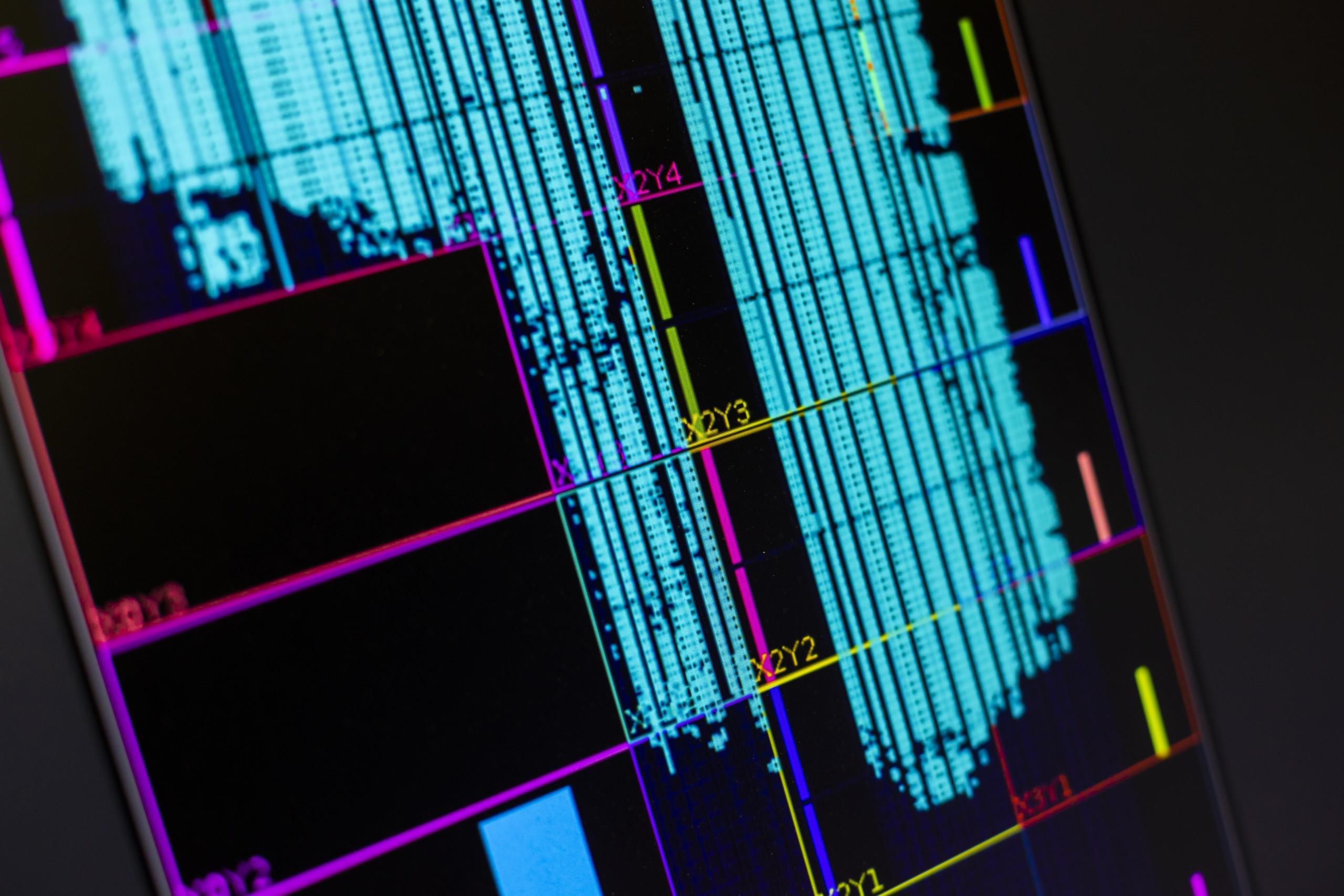Microelectronics doctoral education pilot (MIELi) involves Finland’s key players in microelectronics research: Aalto University, Tampere University, University of Oulu and VTT. The universities offer the doctoral positions and education, and VTT supports the pilot by offering visiting researcher positions, infrastructures, and guidance. Altogether 30 doctoral positions are open for applications, ten in each partner university.
What is MIELi?
The scientific and societal impact of microelectronics is significant, and we need more doctoral level experts in Finland. MIELi is a microelectronics doctoral school pilot that aims to speed up and improve doctoral education in microelectronics by collaborating with industry and academia. The doctoral school pilot aims at graduation in 3 years with industrially relevant research topics and immediate employment to companies and business after graduation.
Microelectronics is a constructive and complex research field that requires teamwork, advanced infrastructures and tools, and highly skilled and experienced workforce. Microelectronics is the key enabler for ICT and other sectors, such as healthcare, energy, and transportation. The demand for experts in the field of microelectronics is already very high and growing, and the opportunities in the job market are numerous and versatile. Microelectronics experts can make a real impact on the world by contributing to technologies critical for the future.
Microelectronics covers four interdependent technology layers:
- Materials, process technologies, and devices built on the material science. For example, printed electronics, transistors, MEMS, and standard cell libraries. The scope is on basic building blocks like single transistors.
- Components and circuits that compose the layer of electronics based on the foundational devices. For example, macros and circuits of thousands of transistors.
- System-on-Chip and processors. Build on top of previous layer with large and complex constructs like processors and RF Transceivers. The SoC itself can include billion transistors.
- Applications that essentially require one or more of the other layers to be realized.
MIELi doctoral pilot programme has the following objectives:
- Increasing the number of doctoral level experts in microelectronics in Finland
- Shortening the doctoral education to three years
- Immediate employment of the graduates in industry and business
- Developing and harmonizing doctoral education in Finland and contributing it to the EU programs
- Elevating doctoral degree appreciation among students as the basic level of education, and
- Growing strategic partnerships with companies enabling and deploying microelectronics.
To reach these goals and support the doctoral candidates, the pilot will have clearly defined doctoral thesis topics, network-wide training and joint courses, personal career development plans and supervision. The project will also aim at streamlining the evaluation process and enhancing research infrastructures.
For whom?
The pilot is targeted for experienced life-long learners currently working in companies, as well as for candidates that have just graduated. The pilot aims at rapid graduation, for which reason the students must have firm master level education in the field without need for any preparatory or completing studies before the doctoral education.
Positions
MIELi offers in total 30 doctoral positions distributed as ten positions for each university (Tampere University, Aalto University and University of Oulu). There are several pre-defined topics available and possibility to propose student’s own topic. The positions are offered by the three universities, and you need to send your application for the university offering the topic. Pre-defined topics are provided by the research groups and supervisors listed with the topic title and description. See more information on the topics and the links to the universities’ own application webpages below.
Positions at Tampere University
TAU1: Advanced TFTs based on low-temperature ALD
TAU2: Ferroelectric diode for intelligent sensing
TAU3: Advanced integrated transmitters for 6G
TAU4: Wideband dataconverters for integrated 6G transceivers
TAU5: Adaptive runtime and compilation techniques for edge SoCs
TAU6: Reconfigurable hardware for digital radio baseband for cognitive radio
TAU7: SoC Security architecture and processor crypto features
TAU8: High-Level Synthesis Productivity
TAU9: Model based behavioral HDL code generation
TAU10: Low-Power HEVC Video Encoder Implementation on SoC
TAU11: Highly Optimized Processor-Based Design Methods on Modern SoC for VVC Video Encoder
TAU12: HLS Implementation of VVC Video Coding Tools on FPGA
TAU13: Digital predistortion DFE technology for beamforming base-station transmitters
TAU14: Privacy-Preserving Analytics, Operations on Encrypted Data, Post-Quantum Cryptography
TAU15: Side-channel analysis of Post-Quantum Cryptography implementations
TAU16: Open topic
Read more about the positions at Tampere University and apply here
Positions at University of Oulu
UOULU1: Hybrid Predistortion for Millimeter-Wave Efficiency Enhanced Power Amplifiers
UOULU2: Time-resolving CMOS single-photon detector array for Raman spectroscopy
UOULU3: SoCs for next-generation processor architecture, neuromorphic computing, and biomedical sensors
UOULU4: Visual light communication IoT processing node development
UOULU5: IC development for single photon diode LIDAR arrays
UOULU6: RF/mmW/sub-THz design approaches using AI/ML techniques
UOULU7: Low resolution ADC multi-antenna receiver
UOULU8: Sub-THz transmitter IC
UOULU9: Sub-THz On-chip End-fire Antennas
UOULU10: Integrating Sensing and Communication SoCs
UOULU11: Gradient index structures for sub-THz lens-antenna applications
UOULU12: Smart materials and structures for remote RF sensing
UOULU13: T1: ML assisted prognosis of the reliability of flip chip on board interconnects, T2: Chiplet-to-chiplet interconnection testing and reliabality on novel chiplet interposers
UOULU14: Semiconductor device modeling for analog AI accelerators
UOULU15: Chip assembly and interconnects for soft electronic platforms
UOULU16: Open topic
Read more about the positions at University of Oulu and apply here
Positions at Aalto University
AALTO1: Advanced Si substrates for RF applications
AALTO2: Cost-effective Ge-on-Si microchips
AALTO3: Novel metal-to-Si contacts
AALTO4: Heterogeneous integration for extremely miniaturized, smart sensor systems
AALTO5: Aluminium Nitride based polarization doped field effect transistor
AALTO6: Nanostructured carbon-based bio detector
AALTO7: Cryogenic CMOS
AALTO8: Prosessor accelerators
AALTO9: Neuromorphic Audio Sensors for AI-driven IoT
AALTO10: 5G FR3 full-duplex transceiver
AALTO11: Intelligent power drives
AALTO12: Microelectronics enhanced antennas and em-structures
AALTO13: Microelectronics-packaging, integration and rf- interconnects
AALTO14: Telecommunication algorithms accelerators related computer architectures
AALTO15: Flexible on-silicon supported novel MAC-solutions
AALTO16: Open topic
Read more about the positions at Aalto University and apply here
Schedule
- 5 April 2024: Call opens
- 15 May 2024: Call ends
- Work contract starts flexibly between 1 August and 31 December 2024

